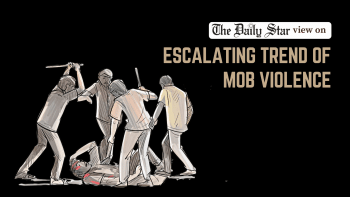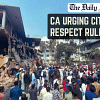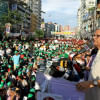Political violence has to stop

We are concerned about the ongoing trend of political violence that has gripped the country in recent months. According to a report by the Human Rights Support Society (HRSS), at least 23 people lost their lives and 733 others were injured in over 97 incidents of political violence in March. Meanwhile, there were at least 40 cases of mob beatings resulting in 12 deaths and 44 injuries—some of which were also reported to have been driven by political motives and personal grudges. As for the parties involved in political violence, we are told that the majority of attacks were confrontations between rival factions of BNP activists. Of the 23 people killed in such violence last month, 18 were reportedly affiliated with BNP.
What has led to this surge in political violence? Why can't political parties control their errant members and establish discipline? The manner in which some of the attacks were carried out shows how out of control many political activists and leaders have become. On March 12, a BNP activist was killed during a clash at an iftar programme. Earlier, a BNP leader was beaten to death by his rivals right in front of his wife. It is clear that criminal elements embedded within some of the parties are feeling emboldened by the normalisation of such violence over time and the lack of legal or political consequences. This is unacceptable.
The BNP, in particular, must take responsibility for the surge in intra-party violence. Although it has expelled quite a number of party members for their involvement in violent incidents, these actions have proven insufficient as a deterrent. The BNP, therefore, must take stronger measures and send a clear message to all its members and supporters that any involvement in political violence will have immediate and dire consequences. Equally importantly, law enforcement agencies must act decisively to curb violence and refrain from favouring any party or individual while doing so.
All stakeholders of post-uprising Bangladesh should come together to help restore the rule of law. This means the police should act with greater resolve, political parties should take responsibility for the crimes of their members, and community and religious leaders should actively discourage mob violence. A new Bangladesh demands a new political expression that doesn't involve impulsive violence.


 For all latest news, follow The Daily Star's Google News channel.
For all latest news, follow The Daily Star's Google News channel. 










Comments